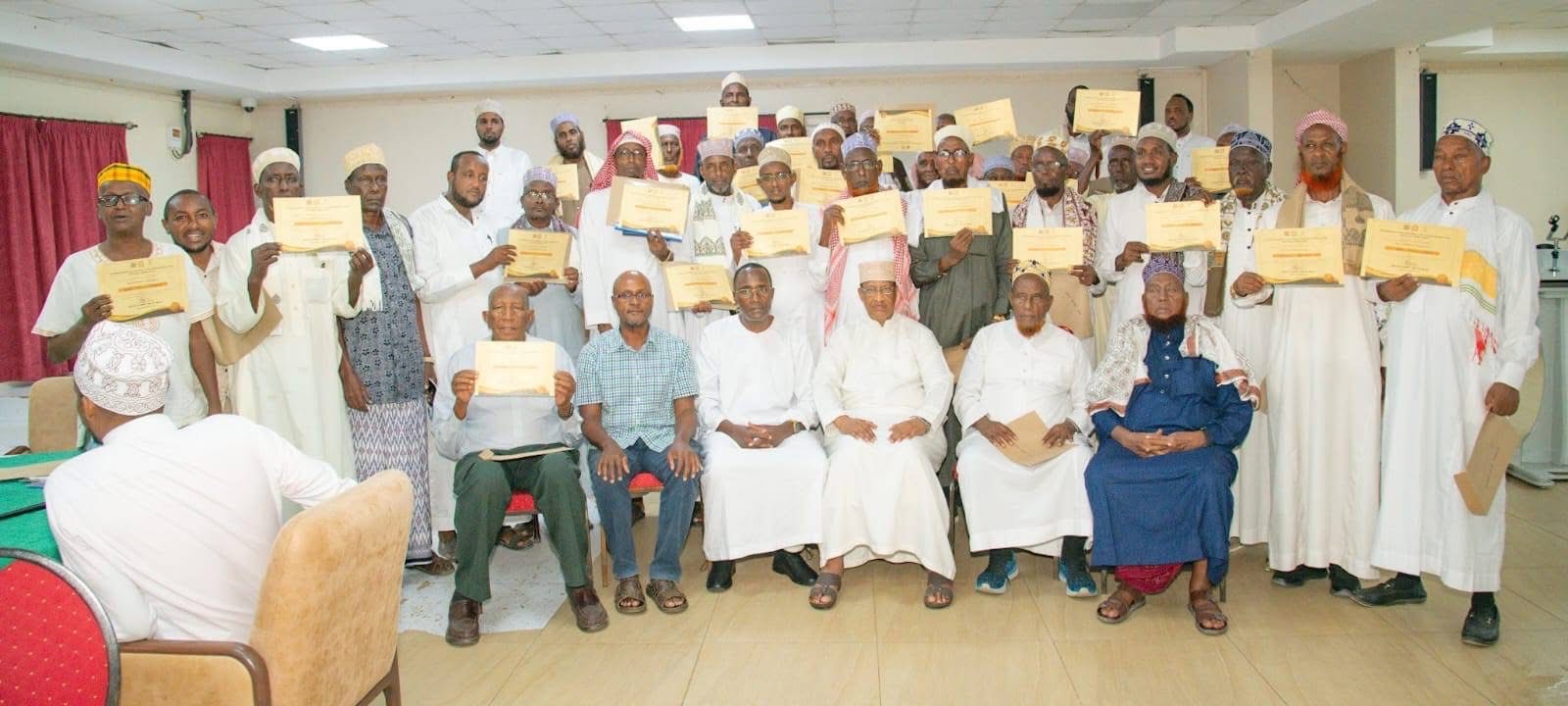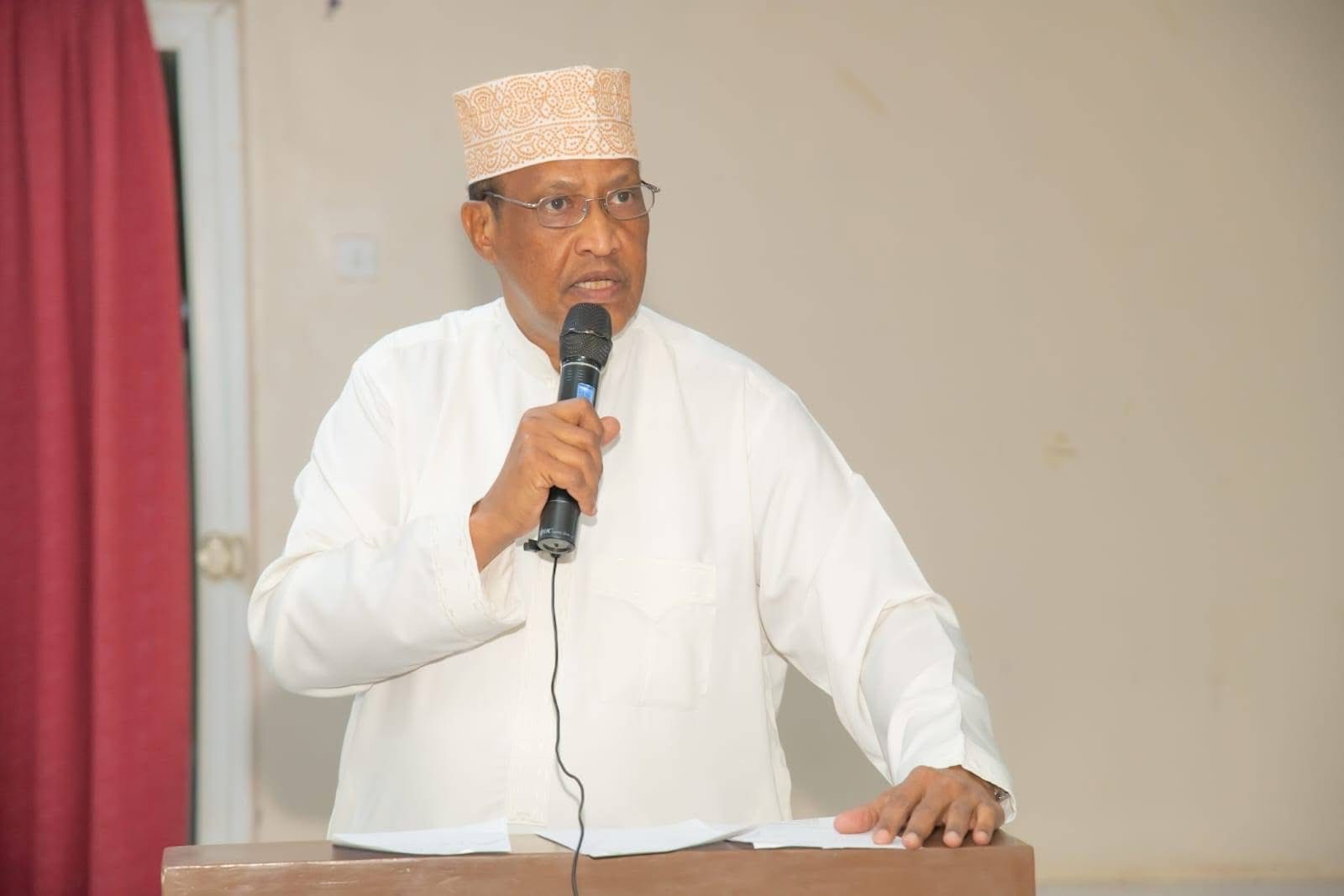Community elders and religious leaders in Garissa empowered on handling alternative justice system

The training was initiated by the National Steering Committee on AJS, during which community and religious leaders were provided with the necessary tools to resolve disputes outside the formal court system, with the goal of improving access to justice.
More than 60 community elders and religious leaders in Garissa have completed a five-day training on the Alternative Justice System (AJS), aimed at equipping them with skills in community dispute resolution.
The training was initiated by the National Steering Committee on AJS, during which community and religious leaders were provided with the necessary tools to resolve disputes outside the formal court system, with the goal of improving access to justice.
More To Read
- Garissa County launches digital livestock vaccination drive to boost pastoralist resilience
- Garissa resident sues National Assembly over police service commission appointments
- Garissa human rights activists demand justice for student allegedly raped and killed by guardian
- Over 170,000 livestock targeted as Mandera and Garissa ramp up vaccination drives
- Garissa town residents call for urgent drainage fix as floodwaters swamp businesses, homes
- Traders count heavy losses as inferno ravages Garissa’s Hagadera refugee camp market
Salah Maalim Hussein, a community elder who attended the training, said it had empowered them with practical skills to manage the community disputes they deal with daily.
“We gained a great deal from the training, which will enhance our efforts to dispense justice within the local community. We were educated on which cases we are permitted to handle and which must be referred to the formal courts,” he said.
 Garissa Governor Nathif Jama addresses the community elders and religious leaders during the official closing ceremony of the five-day training. (Issa Hussein)
Garissa Governor Nathif Jama addresses the community elders and religious leaders during the official closing ceremony of the five-day training. (Issa Hussein)
Hassan Abdi, a religious leader, expressed appreciation for both the training and the government's recognition of AJS as a legitimate justice delivery mechanism.
He noted that many locals preferred AJS due to its effectiveness and the fact that it is cost-free.
“Resolving community disputes has always been part of our traditional practice, passed down through generations. It is commendable that the government has now recognised the critical role played by elders and religious leaders,” he said.
Garissa Governor Nathif Jama, who officially closed the training on Friday, welcomed the initiative, stating that it would strengthen the delivery of justice at the grassroots level.
Governor Nathif announced that the county government had already renovated and fully furnished a courthouse within the Garissa Law Court premises, where elders and religious leaders will now be able to officiate AJS proceedings.
“AJS has proven to be widely accepted because of its traditional relevance and cost-effective approach to justice. We must support it collectively to help overcome delays in formal court processes,” he said.
Garissa High Court Judge John Onyiego praised the contribution of elders and religious leaders in providing AJS services, noting that their efforts had helped ease the workload in the formal judiciary.
He assured the community elders and religious leaders that the Judiciary will continue to support and work closely with them.
Top Stories Today












































